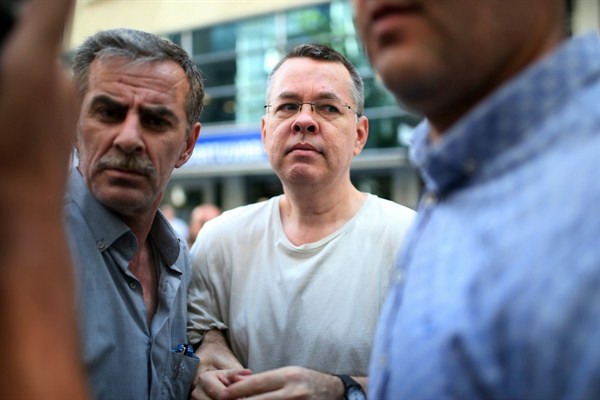Editor’s note: Guest columnist Neil Bhatiya is filling in for Judah Grunstein, who will return Sept. 5.
Relations between the United States and Turkey continue to deteriorate over the detention of U.S. citizens by the Turkish government, with all the focus on an American pastor, Andrew Brunson, who was arrested in the purge that followed the failed 2016 coup attempt against President Recep Tayyip Erdogan. Both sides are digging in, with President Donald Trump declaring in an interview on Monday that “there will be no concessions” to Turkey on securing Brunson’s release, despite the economic risks of Trump’s sudden pressure campaign of sanctions and tariffs. “I think it’s very sad what Turkey is doing,” Trump told Reuters. “I think they’re making a terrible mistake.”
Trump’s comments came after the U.S. rebuffed Ankara’s attempt to resolve the spat by promising to release Brunson in exchange for U.S. authorities backing off the imposition of fines on a Turkish bank linked to evading American sanctions on Iran. With the promise of more U.S. sanctions against Turkey from the Treasury Department, the Trump administration needs to better tailor its approach. Otherwise, it risks a stalemate with Ankara, and a potentially reckless escalation of coercive economic measures meant, nominally, to address the Turkish government’s bad behavior.

